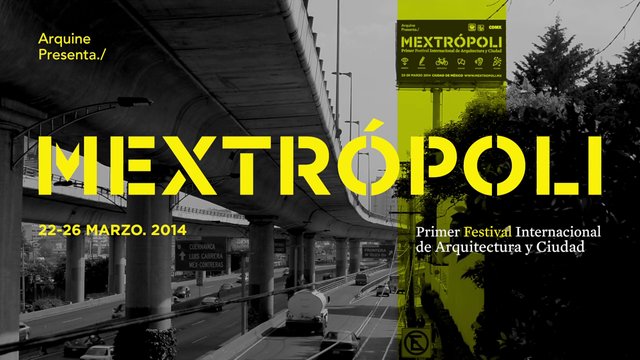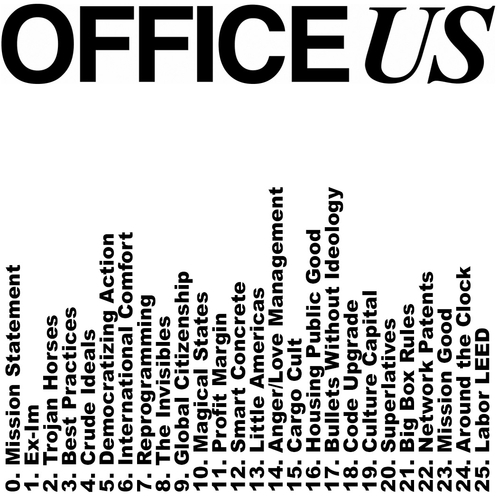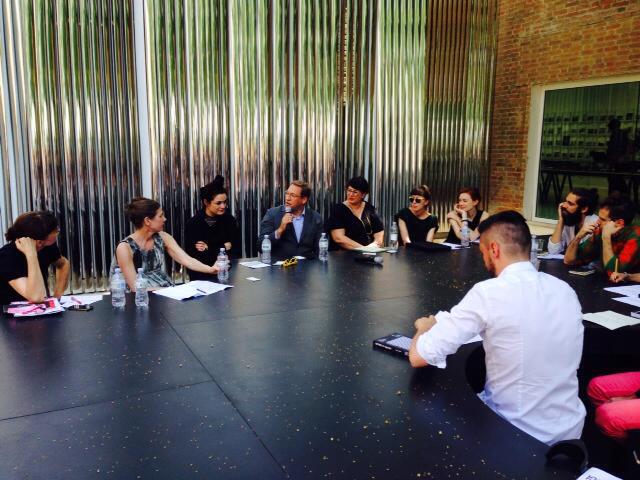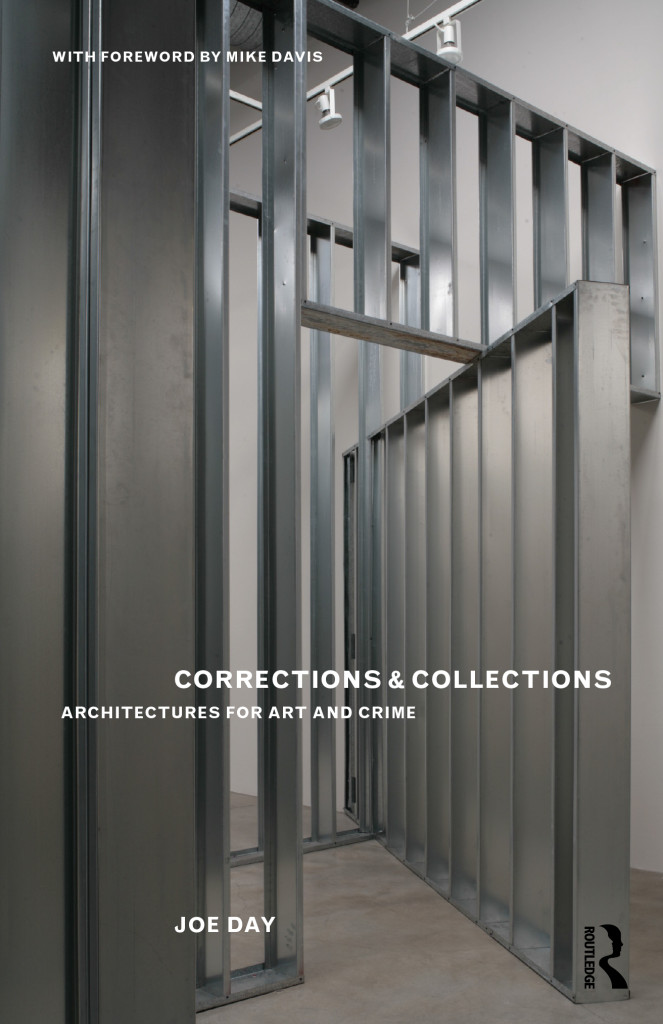OfficeUS 25 ISSUES TALKS, the inaugural working summit of the United States Pavilion at the 14th International Architecture Exhibition, la Biennale de Venezia, in Venice, Italy. The conversations will take place during the opening days, on June 6th, 7th, and 8th at the US Pavilion in the Giardini and will launch the six month investigation of OfficeUS. Read More …
Conversation recorded between Mimi Zeiger and Leopold Lambert in Los Angeles on April 23, 2014for the Archipelago, the podcast platform of The Funambulist. Read More …
As a civic figure, the architect has the privilege and responsibility to articulate and translate the collective aspirations of society, and specifically of those not able to sit at the decision-making tables.
Throughout history, architects have engaged with this responsibility and the structures of economic, political and cultural power in different ways and with varying degrees of success. With the rise of globalization and the homogenization of the contemporary city, the role of the architect in the political arena has often been relegated to answering questions that others have asked. While designing the next economically driven cultural-iconic-touristic object, an increasing amount of both architects and with them, politicians, have forgotten the ethics that should be associated with architectural practice and the potential of design in the construction of public life. Read More …
Join us at USC School of Architecture for a lecture by Mimi Zeiger.
Trained as an architect, critic Mimi Zeiger tracts the rise of publishing as practice through her own work. Memos from the Front Line rejects the binary of the print and digital divide and suggests that the commingling of the analog and algorithmic creates rich territory for cultural production, criticism, and architectural experimentation.
Wednesday, April 16, 2014 | 2pm
Gin Wong Conference Center
Harris Hall 101
Architecture and Design Film Festival Panel:
Hands-on, Ground-up: Community and Design/Build
- Dave Sellers
Architect - Jenna Didier
Artist - Mimi Zeiger – Moderator
Critic and Curator - Steve Badanes
Architect / Educator
Hippie havens, handbuilt provocations, and tech experiments with Yestermorrow, Jersey Devil, and Materials & Applications.
Mediabisto’s coverage of the panel by Brigitte Brown.

Mextropoli, the First International Festival on Architecture and the City, organized by Arquine and directed by Andrea Griborio, takes place in Mexico City March 22-26, 2014.
Panel Discussion: Habla ciudad: la crítica
Iker Gil (Chicago), Andrés Jaque (Madrid), Ethel Baraona Pohl (Barcelona), Mimi Zeiger (Los Angeles)
Habla ciudad: la crítica
Date: Wednesday, March 26, 2014
Time: 5 pm – 6:30 pm
Location: Plaza de la Santa Veracruz
Syracuse Architecture
Lecture
Slocum Auditorium
Syracuse University
The Los Angeles Forum for Architecture and Urban Design presents:
Corrections & Collections: Architectures for Art and Crime
A Book Talk and Signing
December 5, 7 p.m. Read More …
Across our diverse fields we are tackling the question of how to better engage the bottom-up-open-source-distributed-tactical-informal-crowd phenomena surrounding us, whether in the service sector, the city, or the networked community. Read More …
Advisory Board Member and Respondent
In 2030, the world’s population will be a staggering eight billion people. Of these, two-thirds will live in cities. Most will be poor. With limited resources, this uneven growth will be one of the greatest challenges faced by societies across the globe. Over the next years, city authorities, urban planners and designers, economists, and many others will have to join forces to avoid major social and economical catastrophes, working together to ensure these expanding megacities will remain habitable.
To engage this international debate, Uneven Growth brings together six interdisciplinary teams of researchers and practitioners to examine new architectural possibilities for six global metropolises: Hong Kong, Istanbul, Lagos, Mumbai, New York, and Rio de Janeiro. Following on the same model of the MoMA exhibitions Rising Currents and Foreclosed, each team will develop proposals for a specific city in a series of workshops that occur over the course of a 14-month initiative.
Uneven Growth seeks to challenge current assumptions about the relationships between formal and informal, bottom-up and top-down urban development, and to address potential changes in the roles architects and urban designers might assume vis-à-vis the increasing inequality of current urban development. The resulting proposals, which will be presented at MoMA in November 2014, will consider how emergent forms of tactical urbanism can respond to alterations in the nature of public space, housing, mobility, spatial justice, environmental conditions, and other major issues in near-future urban contexts.
Urban Case Study Teams:
New York: Situ Studio, New York, and Cohabitation Strategies (CohStra), Rotterdam
Rio de Janeiro: RUA Arquitetos, Rio de Janeiro, and MAS Urban Design ETH, Zurich
Mumbai: URBZ, Mumbai, and Pop Lab, Massachusetts Institute of Technology (MIT), Cambridge
Lagos: NLÉ Architects, Lagos, and Inteligencias Colectivas, Madrid
Hong Kong: MAP Office, Hong Kong, and Network Architecture Lab, Columbia University, New York
Istanbul: Superpool, Istanbul, and Atelier d’Architecture Autogérée, Paris


